Doctor’s will to help others takes her to Africa
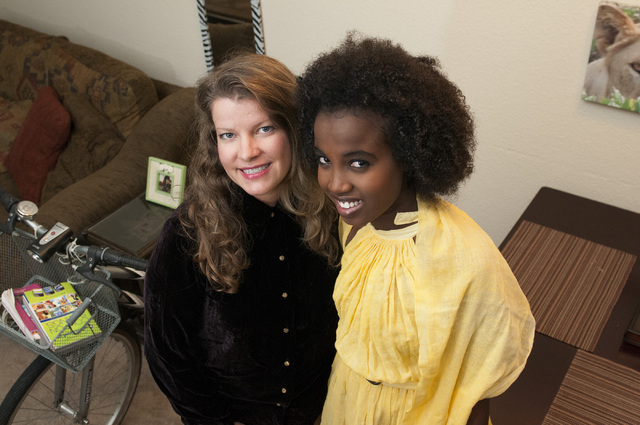
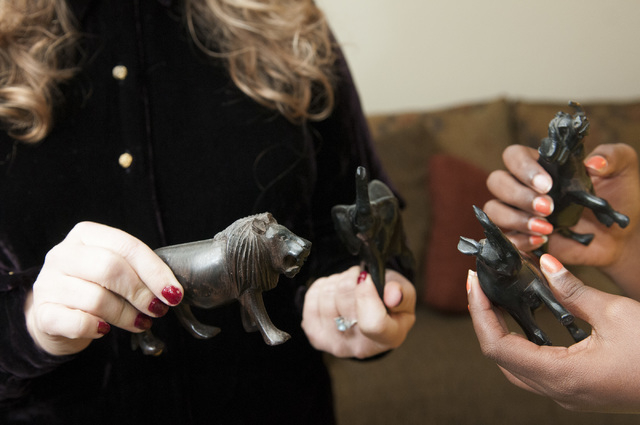
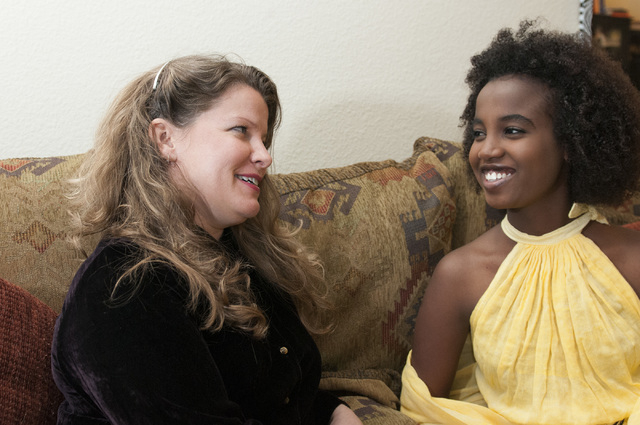

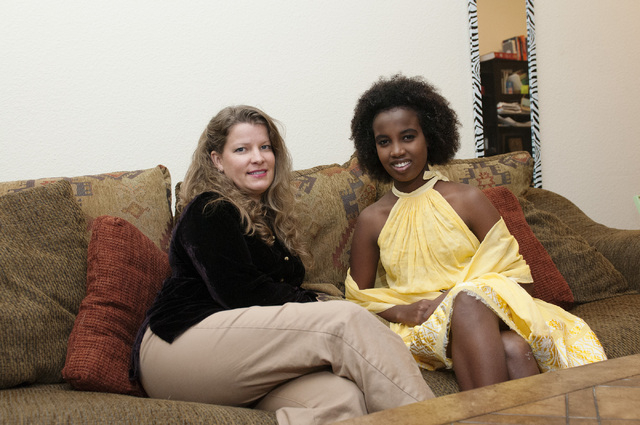
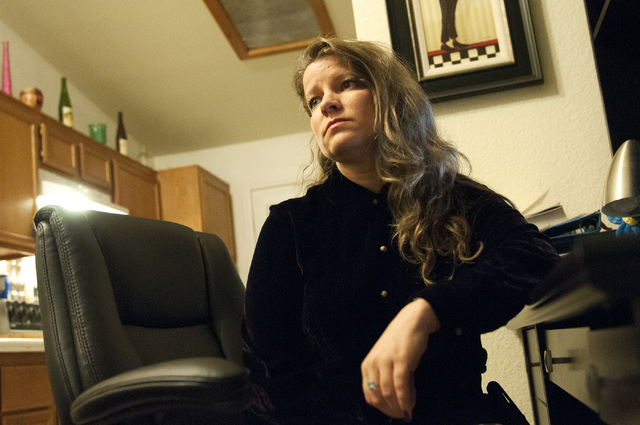
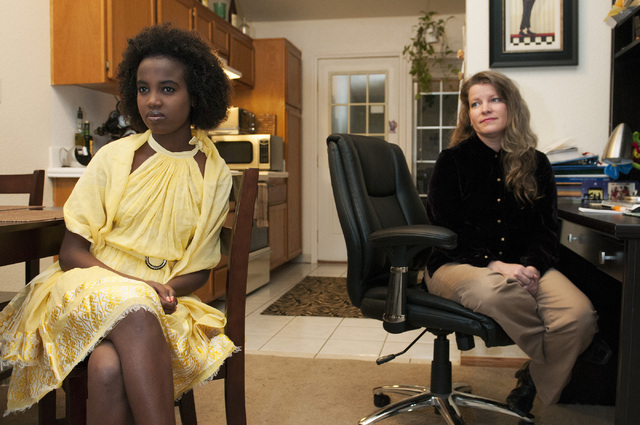

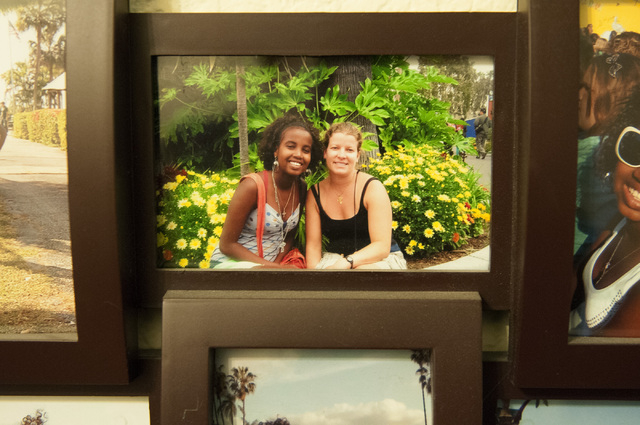
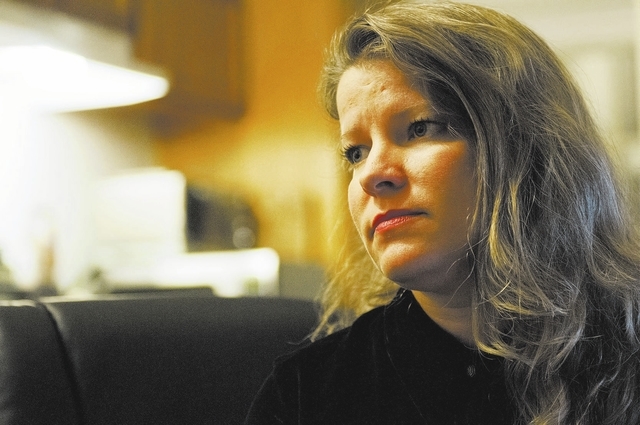
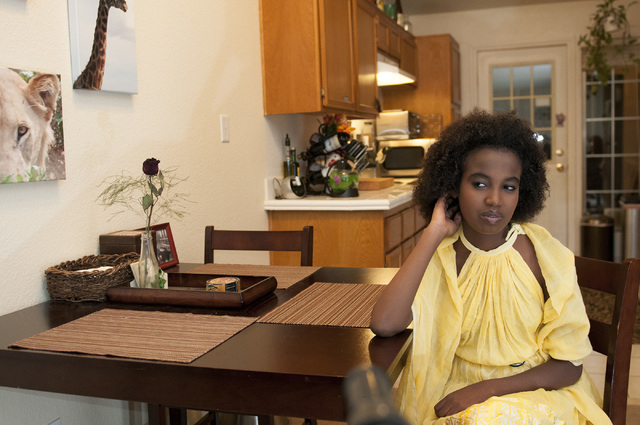
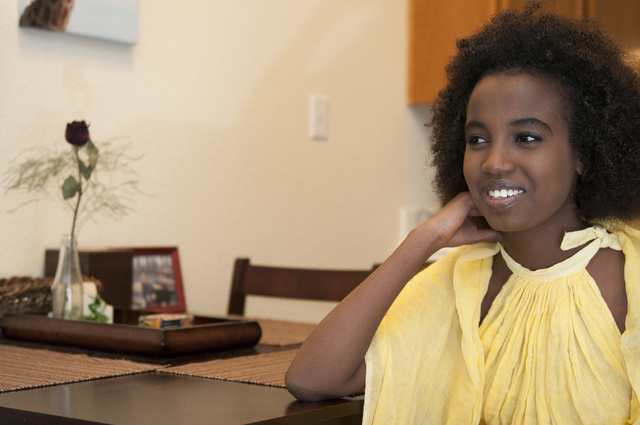
When a baby stopped breathing not long ago at Summerlin Hospital, Dr. Heather Books and her emergency team were ready. They resuscitated and stabilized the infant long enough with medications to allow lifesaving corrective heart surgery.
It couldn’t have been more gratifying, Books said, to know that she had saved a life and saved a couple from grief, allowing them to experience the joy of raising their child.
Handling children’s emergencies, whether heart problems, severe allergic reactions, complications from asthma, life-threatening infections or fractures, is what Books, as a pediatric emergency physician, does, what she feels honored to do.
Southern Nevada isn’t the only place she practices. In August, the 41-year-old Books was 10,000 miles away, part of a two-week Global Health Outreach volunteer medical mission to Kenya.
She has also gone to the Middle East and looks forward to helping people in South America.
“I have been given the gift of healing through medicine and I feel obligated to share it,” she said recently as she sat with her 15-year-old daughter Hoden in the living room of their tiny Las Vegas home near Summerlin. “I want to help relieve suffering as much as I can. We are all God’s children. We are all brothers and sisters. God didn’t give me intelligence and knowledge just to satisfy myself.”
In Dandora, a slum that sits next to the area that Kenya’s capital city of Nairobi uses as a dump, Books and other doctors and dentists and pharmacists found themselves trying to meet the medical needs of people who live off what they can eat, wear, resell or use from the garbage heaps.
Dogs, pigs and cows also scavenged at the heaps that were piled 20 feet high.
Hoden, who came with her mother, often watched over children who tried to play in the dump as they waited for dental work.
“It was so sad,” Hoden said.
Books gave sedative shots to children before they had as many as eight teeth extracted at one time. She also treated skin and diarrhea infections, pneumonia, acute asthma and other respiratory infections. She dispensed medications for hypertension and diabetes, only to learn that most people could not afford to stay on them.
During their stay in Kenya, the 16-member medical team, which included six pharmacy students, also visited Namaga, which is on the border of Tanzania.
“We saw about 250 patients a day among the four physicians, and the dentists saw countless more,” Books said. “When we arrived each morning, there was a mass of people outside the gates waiting to be seen.”
The children were wearing clothes with holes in them that had been donated by people in the U.S. in the 1970s and 1980s.
“They were wearing team jerseys and they didn’t know what they represented,” the doctor recalled. “They used the dump for food because there was no welfare or feeding program.”
Once a family brought her a 1-year-old infant who had been fed goat’s milk since birth.
“Infants cannot extract enough iron from goat’s milk,” Books said. “They need breast milk or formula. With only goat’s milk they can become severely anemic and suffer brain damage,” Books said.
The listless child was so anemic that both her tongue and nailbeds were white.
Her heart rate was more than 200 beats per minute (between 80 and 130 is normal) because she had to use what few red blood cells she had to bring oxygen to her whole body. The child was breathing more than 80 times a minute — more than twice the normal rate — because she was in high output heart failure
“The saddest thing is,” Books said, “the family went to the local government hospital a month before and were told the infant was fine and just needed to ‘eat more.’ The medical staff was so poorly trained they couldn’t identify anemia or congestive heart failure.”
Books sent the family with their child back to the hospital with instructions to doctors there for an immediate blood transfusion.
“I just hoped they listened to me at the hospital,” Books said. “That child could still live a fairly normal life.”
Books said the Kenyans she talked to distrusted hospitals so much that they never wanted to use them.
“The quality of care is so low that they just saw them as a place to go when you were ready to die,” she said.
The medical team had to send one man to the government hospital who went in and out of seizures and had blood seeping from his mouth.
Books said the desire to help others became central to her life while she was an undergraduate in New York. Impressed by members of the Campus Crusade for Christ, she became a Christian, devoting herself to see hurting people helped.
She was moved by pastors who already had families adopting children from around the world who were in dire straits. She decided then that when she was married, she, too, would adopt children in precarious situations and try to give them better lives.
“Before I became a Christian, I was very self-centered,” she said. “I had never really seen the old man with groceries who needed help walking across the street, he wasn’t on my radar. I never listened to and then helped the woman who couldn’t pay the rent.”
The native New Yorker, who had nearly followed in her father’s footsteps to become a teacher, became a missionary through Youth With a Mission. In the 1990s, she worked with local churches in China, Nepal and India, frequently doing surveys to see what the needs of people were and counseling groups on public health issues.
“During that time, I realized that I could be more effective in helping people as a doctor,” she said.
She was accepted by Tulane University Medical School in New Orleans sand used scholarships, grants and loans to finance her education. During a residency in California, she went on her first medical mission to Kenya.
“Ten years ago, they weren’t even treating HIV,” she said. “They let kids develop AIDS and die. We had patients dying every day. Everybody had (tuberculosis), AIDS, meningitis. I saw a baby die of pertussis (whooping cough), a vaccine preventable disease. It was a very difficult time, but I did some good.”
As she finished training in pediatric emergency medicine at a New Jersey hospital, her desire to adopt a child grew.
“I hadn’t married but I felt I had something to offer a child,” she said.
Having seen how difficult it was for children in Africa — many had become orphans because of AIDS — she scanned the websites of international adoption agencies for a child there to help.
The story of Hoden, an 11-year-old girl in an Ethiopian orphanage, tore at the doctor’s heart. The girl, one of six children born to a woman who lost all three of her husbands in wars, seemed to have little hope for the future.
“I had always assumed when you adopt a child, she or he would be under 5,” Books said. “And that would be hard when I was alone. But I figured an older child I could do.
“I also found out that in Ethiopia the life expectancy for a woman was 54, most received no more than a seventh-grade education and 25 percent were sexually abused. I decided this was a little girl I could help and love.”
A year after she started the paperwork to adopt the child that had such a beautiful smile in the Internet video, Books showed up at the adoption agency in Ethiopia.
“We were in a big room and all the kids came running in,” the doctor recalled. “We recognized each other from pictures. She ran up to me and hugged me and said, ‘Hi, Mom.’ She wasn’t scared at all. We kind of connected right away.”
But Books hadn’t known earlier that Hoden, who could speak very little English, still had family members, including an ailing mother, who were alive. Hoden’s mother had been raising her children alone in a garage where the rent was 32 cents a month. There was no indoor plumbing for a bathroom or wiring for a kitchen.
The mother, Books learned from authorities, put her youngest child in an orphanage, in hopes she would be adopted and get a better life. She ceded her parental rights and she and her family weren’t supposed to be able to contact Hoden if she was adopted.
“What her mother did was an act of love,” said the doctor, who would take then 12-year-old Hoden back to New Jersey.
Books said it burdened her that Hoden still had family living that she was not contacting. It turned out that Hoden had a sister that worked for the Ethiopian government that she could keep in touch with by phone.
The doctor saw to it that the calls were made monthly and she vowed to get Hoden back to see her birth mother before the birth mother died.
Even before they got back to the United States, Books said she began to realize that Hoden would have a tremendous culture shock.
“She couldn’t believe it when I told her I had a car,” the doctor said. “When we were in Amsterdam for the plane ride home, I got on the escalator but she didn’t. She was afraid. There I was at the top of the escalator and she was down below afraid to get on. I couldn’t help feeling like I had already abandoned her.”
The story of her adoption makes Hoden misty-eyed. She said that when her mother first told her she was going to place her in an orphanage, she got upset.
“I thought she didn’t love me,” she said. “But she told me she was doing it because she did love me. She wanted me to have a better chance.”
In New Jersey, the girl whose native language was Amharic quickly became a fluent English speaker through English as a Second Language classes and television.
“I feel like I really learned to speak through the Disney Channel,” said Hoden, whose sentences are peppered with the word “cool.”
She also made good friends there. When her mother finished training at a New Jersey hospital and took a job at Summerlin Hospital 16 months ago, it wasn’t easy to leave her friends.
Life became even harder when she attended Palo Verde High School her freshman year. She didn’t have ESL classes to take.
“Kids made fun of my accent and laughed that I read so slow,” Hoden said. “They were rude. That wasn’t cool at all.”
At the bus stop, a boy she identified as a bully would take kids’ lunch money.
“They had to call the police out there,” Books said.
One of the reasons Hoden liked ROTC at Palo Verde is that the instructor wouldn’t allow students “to be rude” toward her.
“She failed basically everything at Palo Verde because they treated her like she was from the United States,” Books said. “I fought them for a year. She could speak English but she couldn’t read and write it. She needed ESL classes before getting other work. “
Finally, a language specialist at the school suggested Hoden would do far better at Global Community High School, which is part of the Clark County School District and is available for students learning English. That it took so long to get her there still mystifies Books.
Hoden’s doing better now, even though all of the other students at Global are Spanish-speaking.
“The kids are much cooler,” she said, adding that she wants to do well in school so she can one day help people in Africa like her mother. It won’t be as a doctor, however: “I don’t like the sight of blood.”
She attends nearby Shadow Hills Baptist Church with her mother. They also go hiking, read together, and attend shows at The Smith Center for the Performing Arts. She has made some new friends.
Still, she said, if more white, black and Hispanic kids would hang out together, instead of sticking to their own racial groups, she believes they would understand each other better.
She also wishes more people that she says “Hi” to when she walks down the street would return the greeting.
“They always did that in Ethiopia,” she said.
Still, she said she’s starting to like Las Vegas. She enjoys a dance class, the warm weather, hanging out with friends, shopping.
Books took the medical mission in August to nearby Kenya partly so her daughter could again see family in Ethiopia. After the mission was over, they made the short plane trip to the country of Hoden’s birth and stayed for two days.
“In Ethiopia, when we came off the plane, her sisters and brothers and cousins were there,” Books recalled. “They gave us roses.”
Hoden’s ailing birth mother traveled eight hours by bus to see her.
“I had butterflies waiting to see her,” said Hoden, who hugged her mother as she cried.
Hoden’s mother embraced Books and thanked her for what she was doing for Hoden.
“We were both crying,” Books said. “I was so happy she was still alive to see Hoden again.”
Hoden said she’s lucky.
“I have two mothers who love me. That’s so cool.”
Contact reporter Paul Harasim at pharasim@reviewjournal.com or 702-387-2908.












